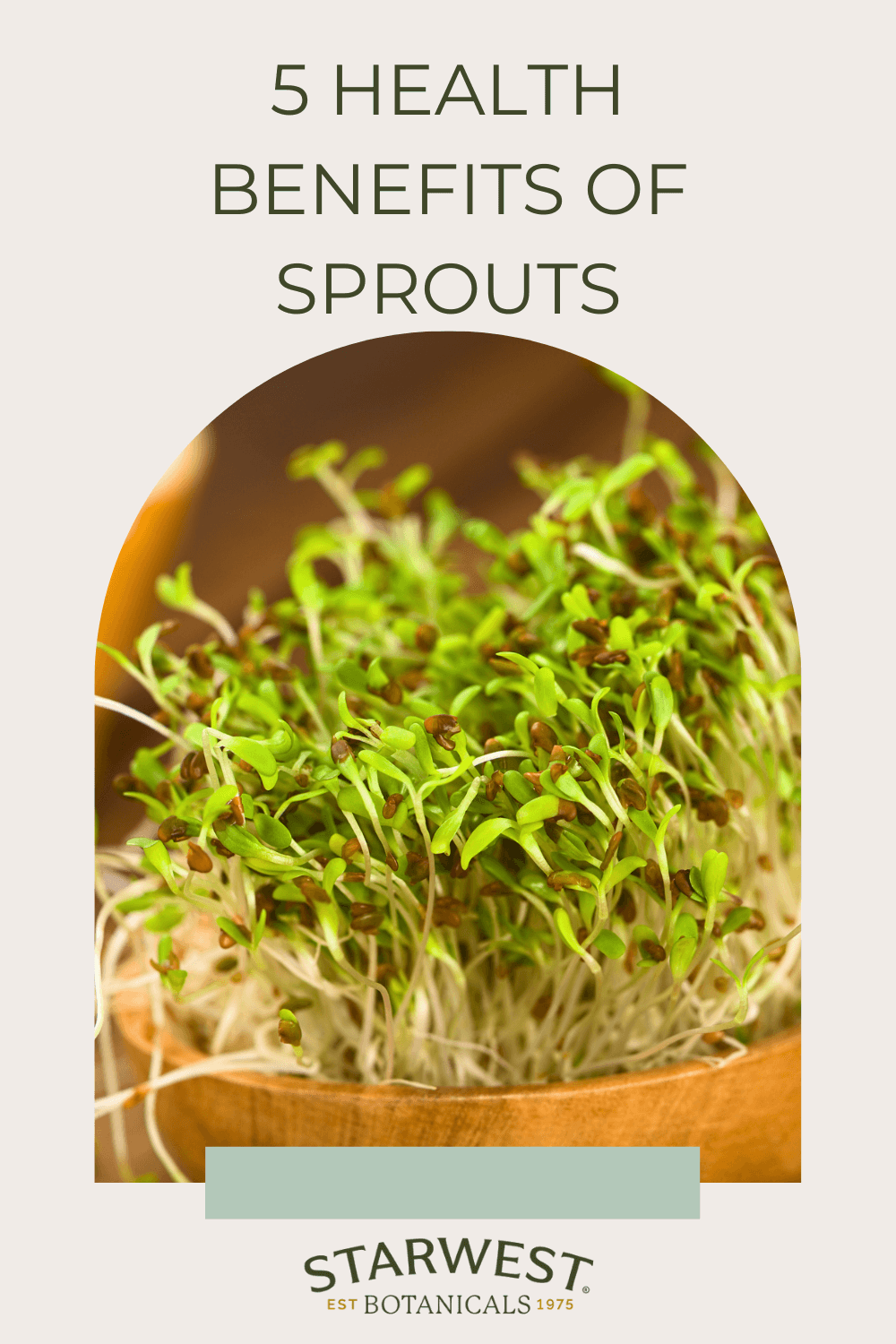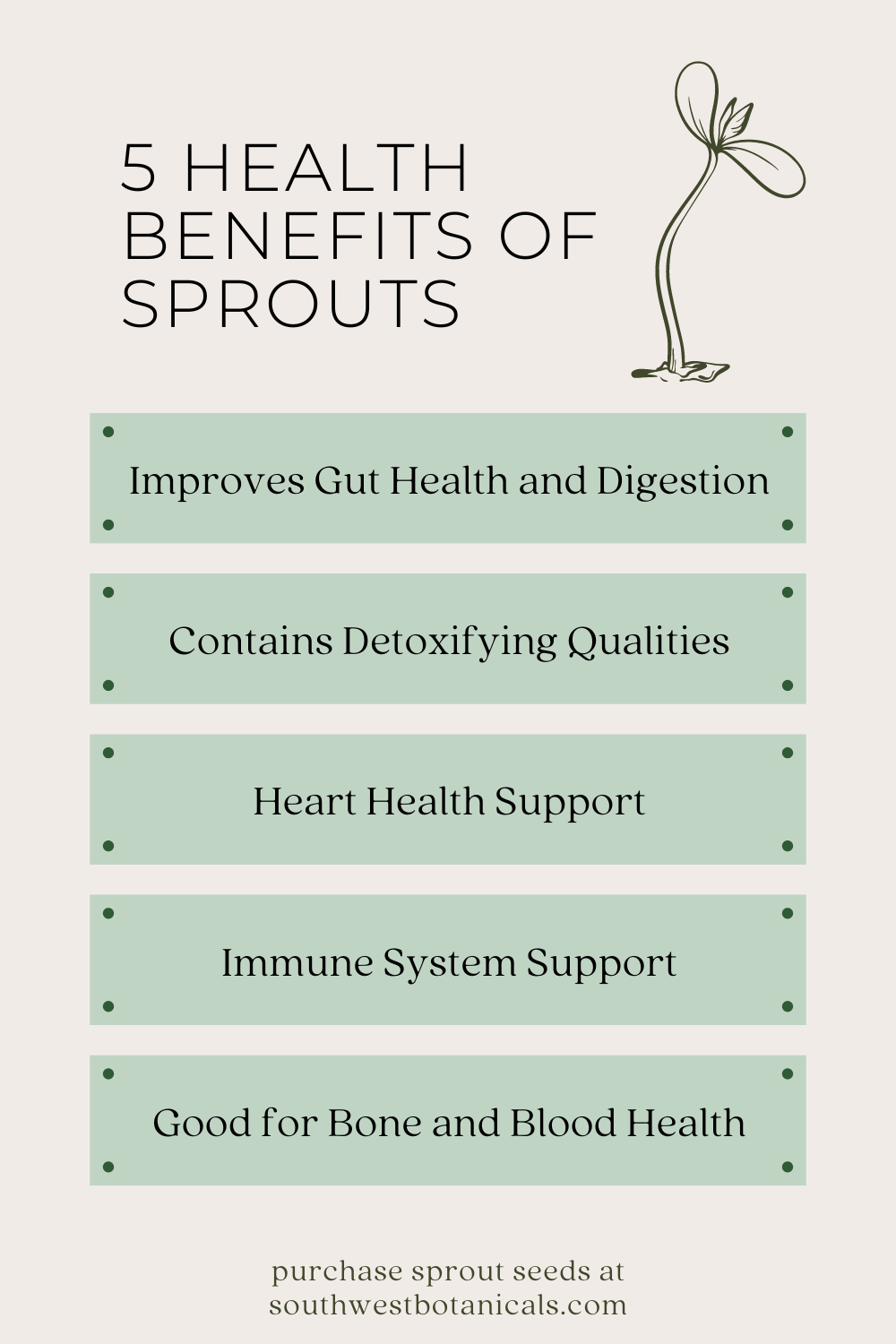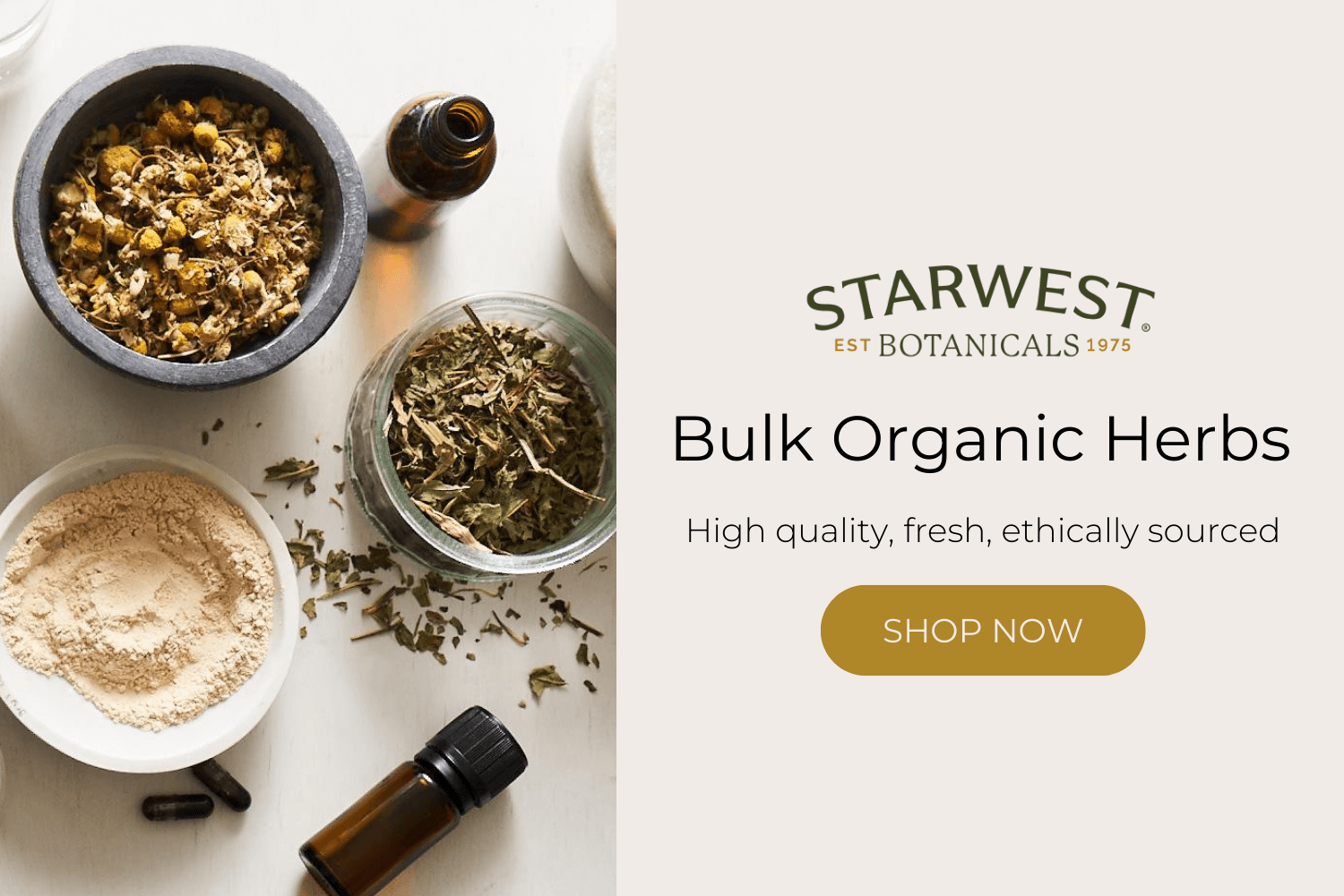5 Health Benefits of Sprouts | Starwest Botanicals
Posted by Starwest Botanicals Content Team | Medically Reviewed by Daniel Powers, MS on 07-27-2022

There’s no question that a nutritious diet is a major factor in overall health. If you’re looking for a natural boost on your wellness journey, sprouts (edible, germinated seeds with shoots) are a unique culinary option that can support a healthy lifestyle.
What are the health benefits of sprouts?
We’ll cover all of the sprout's health benefits, as well as the possible risks of consuming improperly prepared sprouts. Read on to join us as we explore how organic sprouting seeds can contribute to a sustainable wellness routine.
What are Sprouts?
If you’re not already familiar with these miniature organic seedlings, we’re here to help.
Sprouts are germinated seeds. This means they’ve begun the process of growing into plants, but they aren’t fully grown. Actually, sprouted seeds would turn into standard plants, flowers, and herbs if not for a few key details:
- Water only – Sprouts don’t develop in soil. Instead, after the germination process begins, sprouted seeds are transferred to water to continue developing.
- Short growth time – Most sprouts reach maturity within about a week. After the sprouting process, sprouts are removed from water, dried, and stored.
- Short shelf life – Sprouts are living organic plant life. That means they will begin to decompose if not used quickly. The clear signs of sprout deterioration include a lingering smell, browning, or wilting.
Sprouts come in many different forms, including bean sprouts, vegetable sprouts, nut sprouts, and even sprouted grains. Today, they’re available in grocery aisles, health food stores, and even online. You can also easily find microgreens at these locations. While many think that these micronutrient plants are the same thing, there are actually many differences to consider between microgreens vs sprouts. If you do not want to purchase these in-store, you can also learn how to grow sprouts and microgreens at home for maximum taste and freshness.

Potential Health Benefits of Sprouts:
Below are a few of the top health benefits of sprouts.
#1 Gut Health and Digestion
You want everything you eat to go down smoothly. Unfortunately, that isn’t always the case. That’s where sprouts come in. Sprouts support gut health in the following ways:
- Dietary Fiber – Fiber is a carbohydrate typically found in plants that your body cannot completely digest. This is actually to your benefit. Fiber works to keep gastrointestinal processes running smoothly.1 Sprouts are high in fiber, which can support digestion and bowel movements.
- Encouraging Healthy Weight – Sprouts are low in caloric content, but they’re full of macronutrients that can leave you feeling satisfied. For those interested in healthy eating and maintaining a healthy weight, sprouts can provide a simple snack and dietary addition for crafting filling and enjoyable meals.
- Prebiotic Content – You may have heard of probiotics—the yeast and good bacteria required for a healthy gut. Prebiotics act as a food source for that healthy bacteria, providing the nutrients and energy for digestive yeasts to thrive and function properly.2
#2 Vitamins & Minerals
Sprouts are rich in many different nutrients which have been shown to support health and wellness.
- Added Potassium – This essential mineral is often associated with muscle and nerve health.3 Your heart is a massive muscle itself, and your potassium levels could play a role in keeping it beating regularly. Sprouts offer a great source of potassium for those looking to expand their dietary intake.
- Folate Source – Folate, the natural form of vitamin B9. Adults are encouraged to consume folate daily, and sprouts are an easy way to add a little more into your diet.
- Magnesium – Sprouts are well known for their rich mineral content, including magnesium. This mineral is correlated with immune health, offering support to your cells for fighting back against germs and pathogens.6
- Calcium – Looking for some calcium? Sprouts could be a great source. You might already associate calcium with bone and teeth health, but did you know that calcium may also play a prominent role in regulating your immune system? Studies suggest that calcium can help your immune system’s response to invasive organisms.7
3. Nutrient Rich
In addition to vitamins adn minerals, sprouts are also rich in a variety of different macro - and micro - nutrients!
These include:
- A Source of Protein – The building blocks of life, protein is vital for developing and maintaining biological function. From repairing your bones and muscles to growing your hair and fingernails, your body uses protein throughout your body for a range of essential processes.8 Sprouts can provide an extra boost of protein to your diet. (A little can go a long way.)
- Variety of Micronutrients – They may be called micro, but they’re essential to ensure your body is functioning properly. Sprouts contain micronutrients, including phosphorus, which work to support overall health and wellness.
- Sulforaphane – Sulforaphane is a plant phytochemical that has been shown to benefit the body.5 It also happens to be found in a variety of edible sprouts such as broccoli sprouts.
Potential Health Risks
When correctly cultivated, stored, and prepared, sprouts are a healthy treat that can expand culinary experiences. Unfortunately, this isn’t always the case. Sprouts can pose a health risk if proper care isn’t taken during germination, transportation, or prepping.
Like all food, there’s a proper way to enjoy and benefit from sprouts. So long as you take proper precautions, sprouts shouldn’t pose a problem. Consider the following advice for avoiding any health risks when growing sprouts on your own:
- Wash Thoroughly – All produce requires adequate washing to remove organic matter, potential pesticides, and bacteria. Wash your sprouts every chance you get—as seeds, while growing, and before consuming. Additionally, sanitize all surfaces and containers when preparing sprouts at home.
- Maintain Ideal Growing Conditions – Ensure your growing sprouts are continually rinsed and stirred. If the seeds are left to clump in stagnant water, bacteria could build up quickly and contaminate the entire batch of sprouts.
- Implement Proper Storage and Disposal – Once you’ve harvested your sprouts, place them in an air-tight container. This will keep them out of contact with airborne contaminants. Additionally, sprouts should be refrigerated immediately after harvesting and checked regularly. Sprouts can go bad quickly, so keep an eye out for any discoloration or mold.
Additionally, if you’re purchasing pre-grown sprouts, take the time to look over the exterior surface of the sprouts for signs of bacteria. Consider inquiring about when and how the sprouts were grown. If you have any suspicions, consider leaving any questionable sprouts off your plate.
Find Your Next Sprout at Starwest Botanicals
There’s no single dietary solution for good health. That said, adding sprouts to your diet may provide amazing health benefits, a wellness boost, and a long-term positive impact.
Curious about the best way to find sprouts? Explore Starwest Botanicals to discover a range of sprouting seeds that includes alfalfa sprouts, broccoli sprouts, mung bean sprouts, radish sprouts, and more. They’re certified organic and sold with full transparency.
At Starwest Botanicals, we take health seriously. That’s why we’ve spent more than 40 years building a community of wholesalers committed to quality and customer satisfaction. Today, we’re proud to offer a wide range of products—from sprouting seeds to natural body care—designed to keep you feeling your best.
Explore everything we have to offer.
Sources:
1. Mayo Clinic. Dietary fiber: Essential for a healthy diet. https://www.mayoclinic.org/healthy-lifestyle/nutrition-and-healthy-eating/in-depth/fiber/art-20043983
2. WebMD. Prebiotics. https://www.webmd.com/digestive-disorders/prebiotics-overview
3. Medline Plus. Can potassium help your heart?. https://magazine.medlineplus.gov/article/can-potassium-help-your-heart
4. WebMD. Folic Acid for Your Heart. https://www.webmd.com/heart-disease/news/20021122/folic-acid-for-your-heart
5. Cleveland Clinic. What Are the Health Benefits (and Risks) of Eating Raw Sprouts? https://health.clevelandclinic.org/what-are-the-health-benefits-and-risks-of-eating-sprouts/
6. Science Daily. Magnesium is essential for the immune system. https://www.sciencedaily.com/releases/2022/01/220119121455.htm
7. Science Daily. https://www.sciencedaily.com/releases/2016/05/160531130505.htm
8. Medline Plus. Protein in diet. https://medlineplus.gov/ency/article/002467.htm



